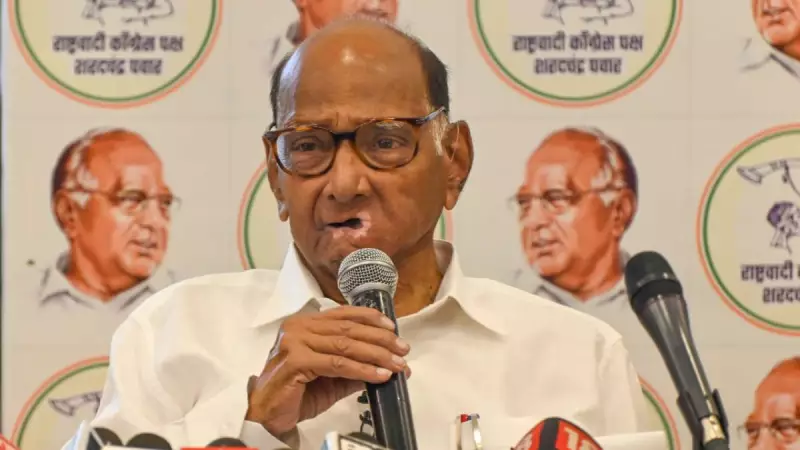
In a significant political development that has sent shockwaves through Maharashtra's political landscape, former minister Salil Deshmukh has resigned from the Nationalist Congress Party (NCP) led by veteran politician Sharad Pawar. This move comes at a crucial time when the party is preparing for upcoming local body elections in the state.
Another Blow to Sharad Pawar's Leadership
The resignation of Salil Deshmukh marks yet another setback for the NCP, which has been facing internal turmoil and defections in recent months. Deshmukh, who served as a minister in the Maharashtra government, announced his decision to quit the party on November 20, 2024, just ahead of the important local body polls scheduled for 2025.
This development is particularly significant because Deshmukh was considered a prominent leader within the party structure. His departure follows a pattern of exits that have weakened Sharad Pawar's grip on the party he founded decades ago. The timing of this resignation, just months before crucial local elections, could potentially impact the NCP's electoral prospects in several regions.
Political Implications and Future Moves
The resignation raises important questions about the future political alignment of Deshmukh and the potential ripple effects on other party members. Political analysts suggest that such high-profile exits often trigger similar moves by other dissatisfied leaders, creating a domino effect that can significantly alter a party's fortunes.
The local body elections in 2025 are crucial for all political parties in Maharashtra as they determine control over municipal corporations, zilla parishads, and other local governing bodies. These elections are often seen as a barometer of public sentiment and can influence the outcome of subsequent state assembly elections.
With Deshmukh's exit, the NCP faces the challenge of not only finding a suitable replacement but also containing further damage to its organizational structure. The party leadership will need to act swiftly to address the concerns of remaining members and present a united front ahead of the electoral battle.
Broader Context of NCP's Troubles
This isn't the first instance of rebellion within the NCP ranks. The party has been grappling with internal dissent and factionalism for some time, with several leaders either switching allegiance to other parties or expressing dissatisfaction with the current leadership.
The situation becomes more complex when viewed against the backdrop of Maharashtra's volatile political environment, where alliances shift frequently and parties constantly realign based on strategic considerations. The timing of Deshmukh's resignation suggests careful political calculation, possibly aimed at maximizing his bargaining power with potential new political partners.
As the political drama unfolds, all eyes will be on Sharad Pawar's next moves and how the NCP plans to counter this latest challenge to its authority. The party's ability to weather this storm will likely determine its relevance in Maharashtra's political landscape in the coming years.
The coming weeks are expected to bring more clarity on Deshmukh's future political plans and whether other NCP leaders will follow his example. What remains certain is that Maharashtra politics is in for another period of uncertainty and realignment as parties position themselves for the upcoming local body elections.





